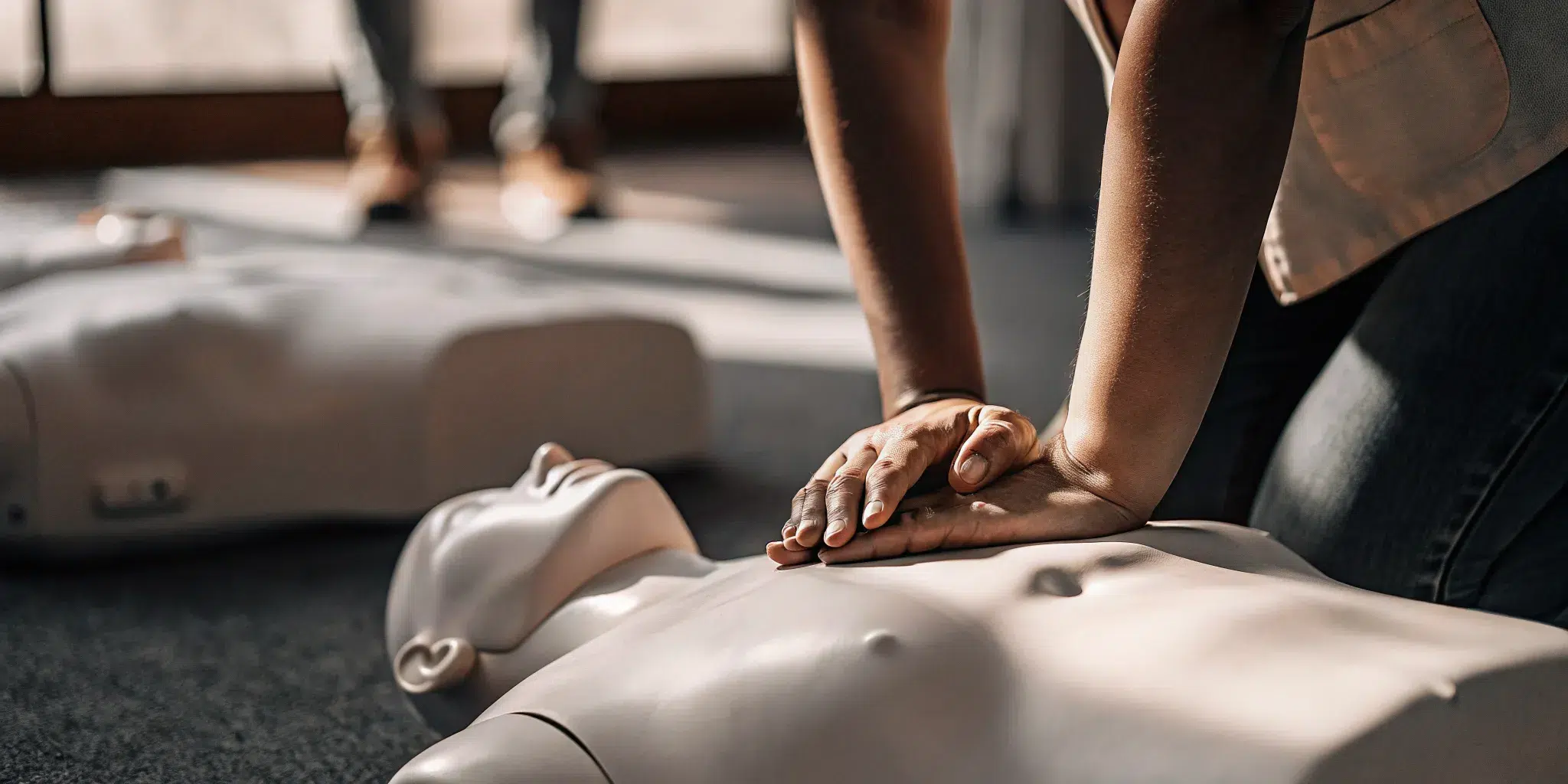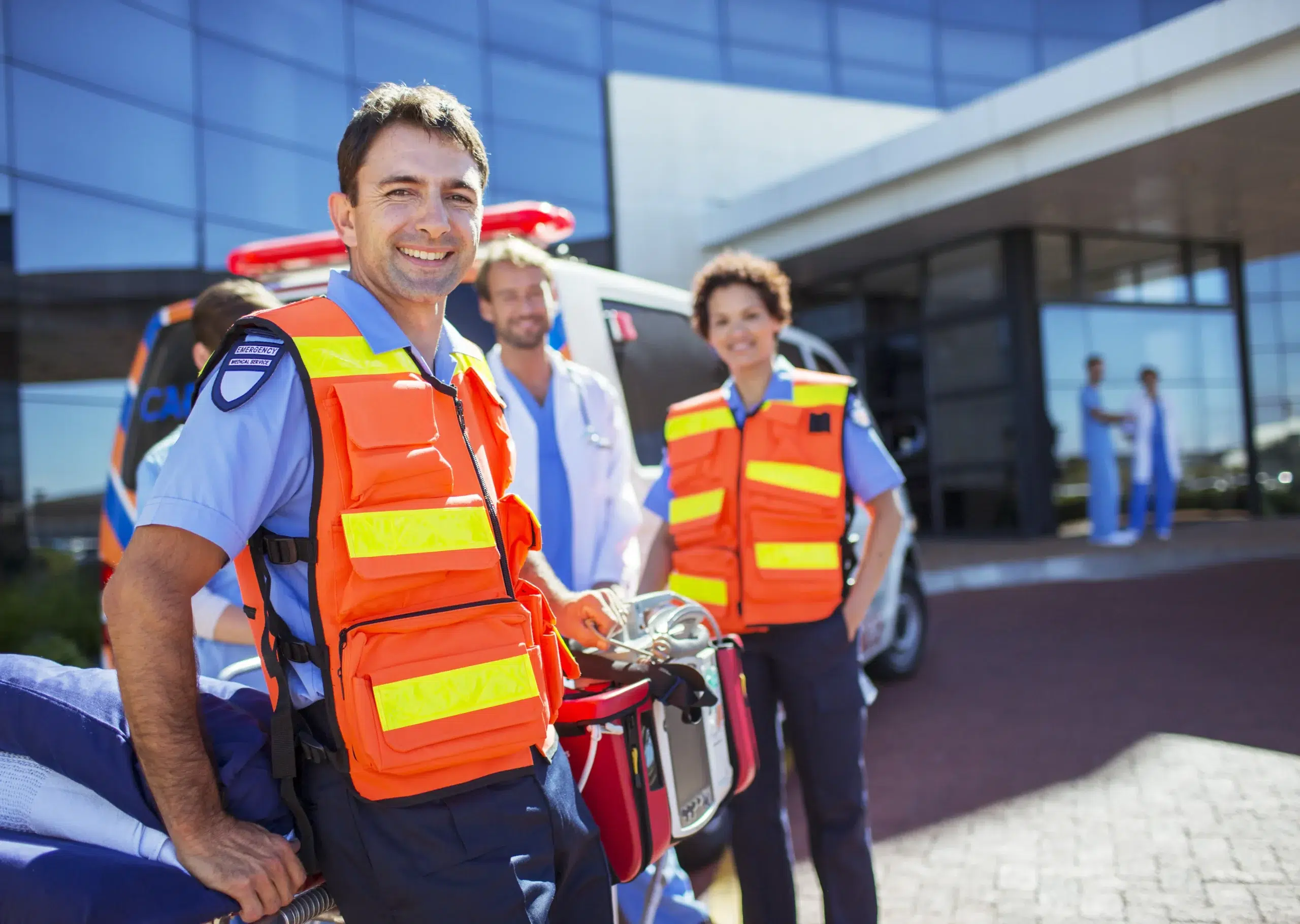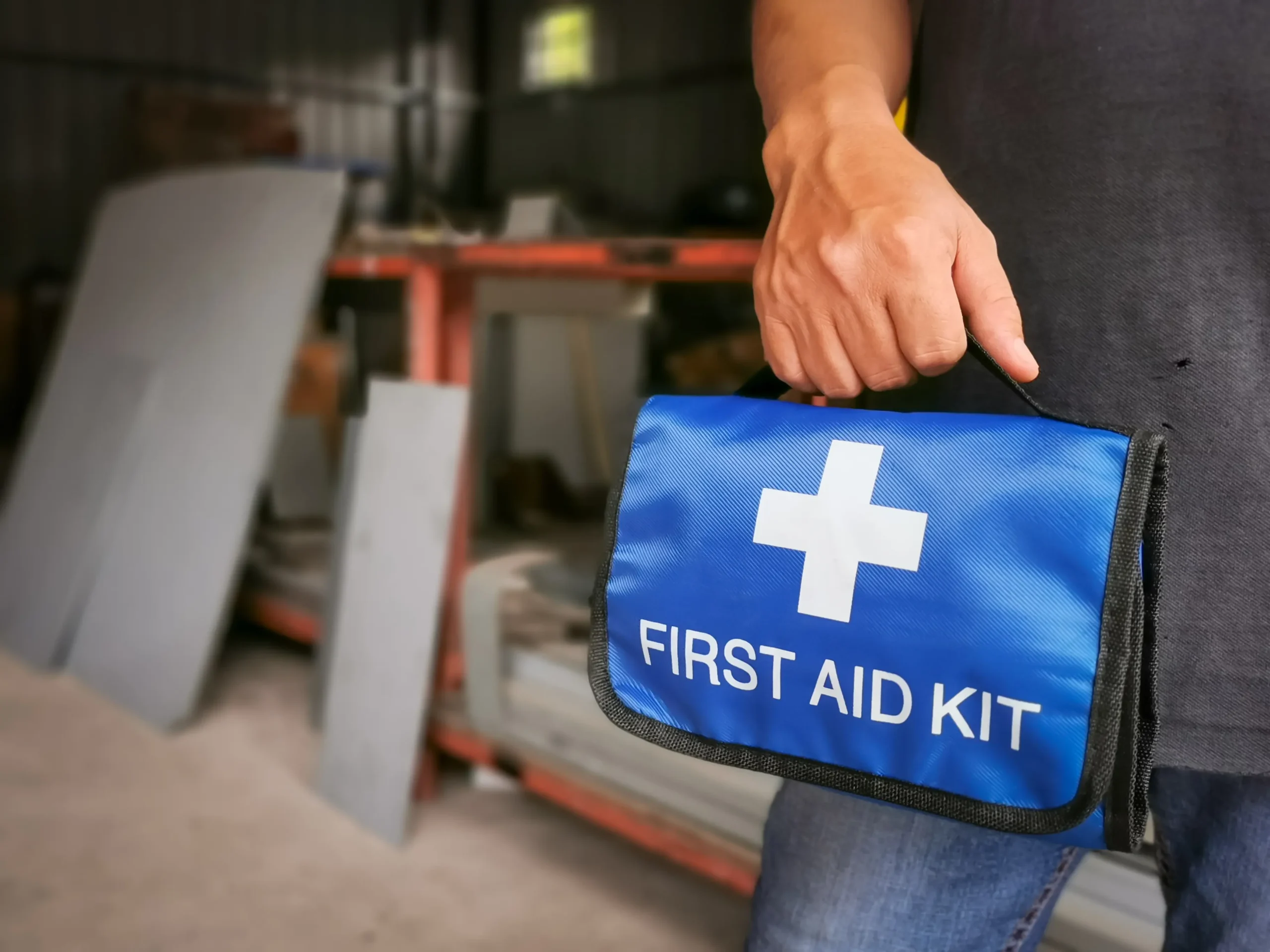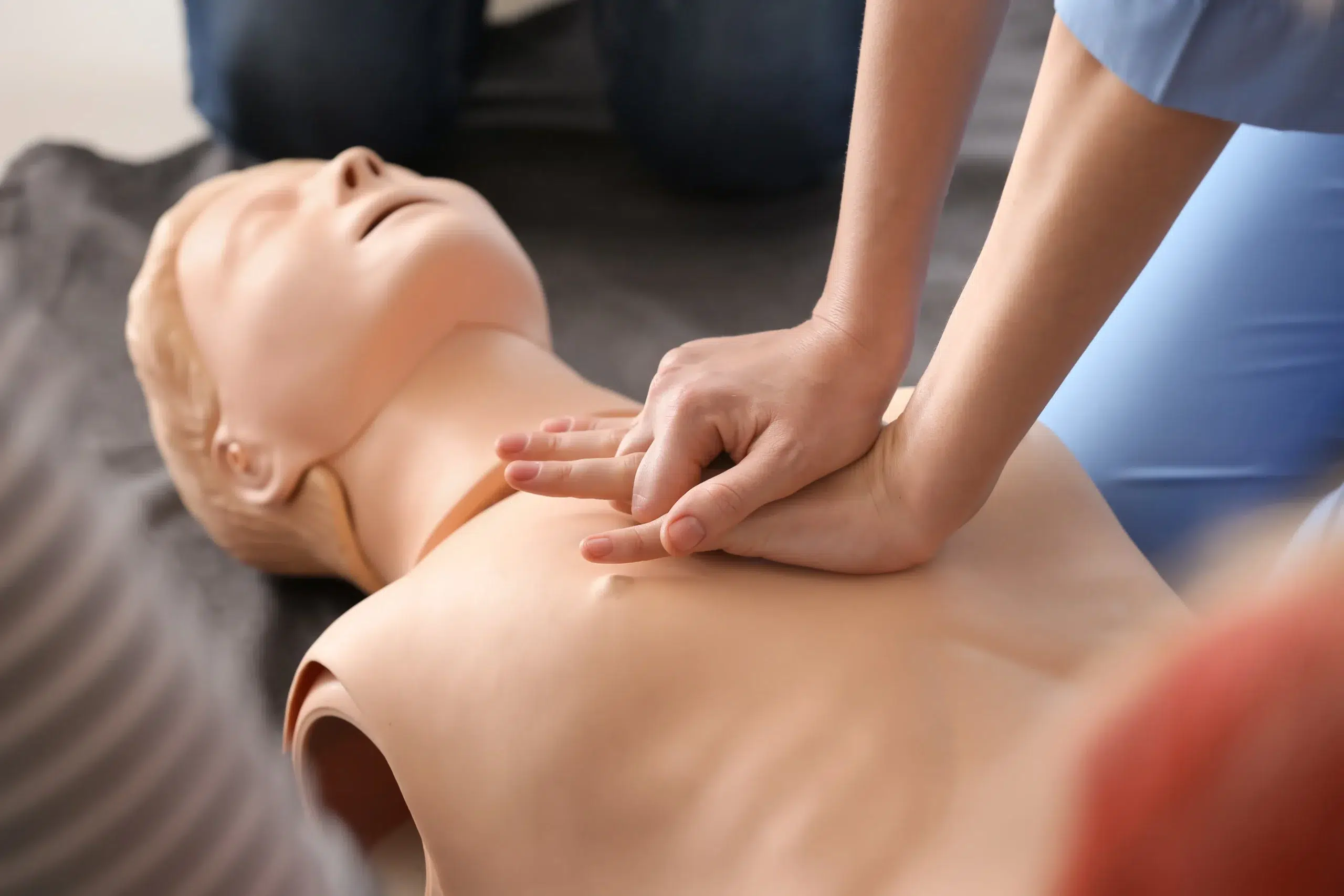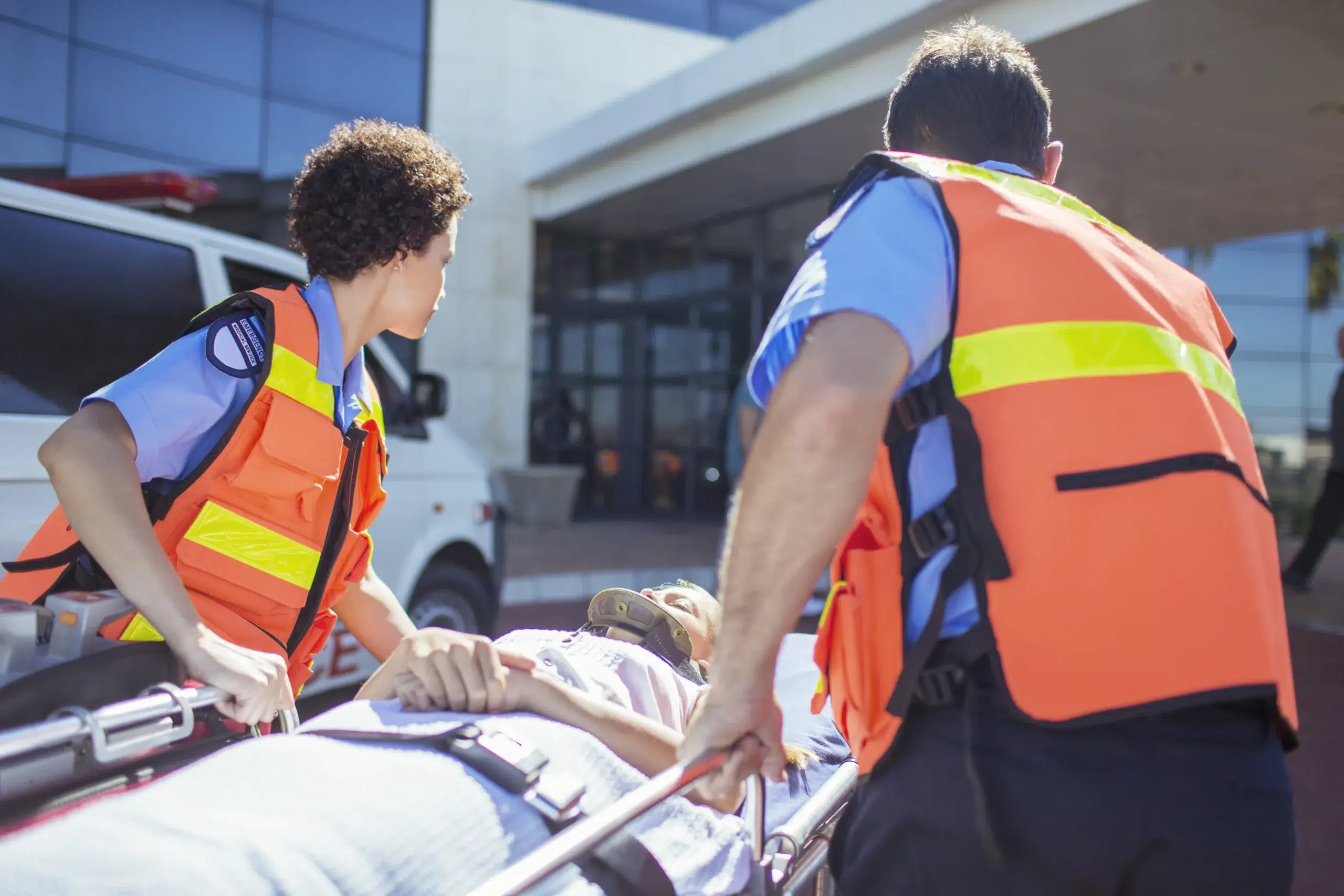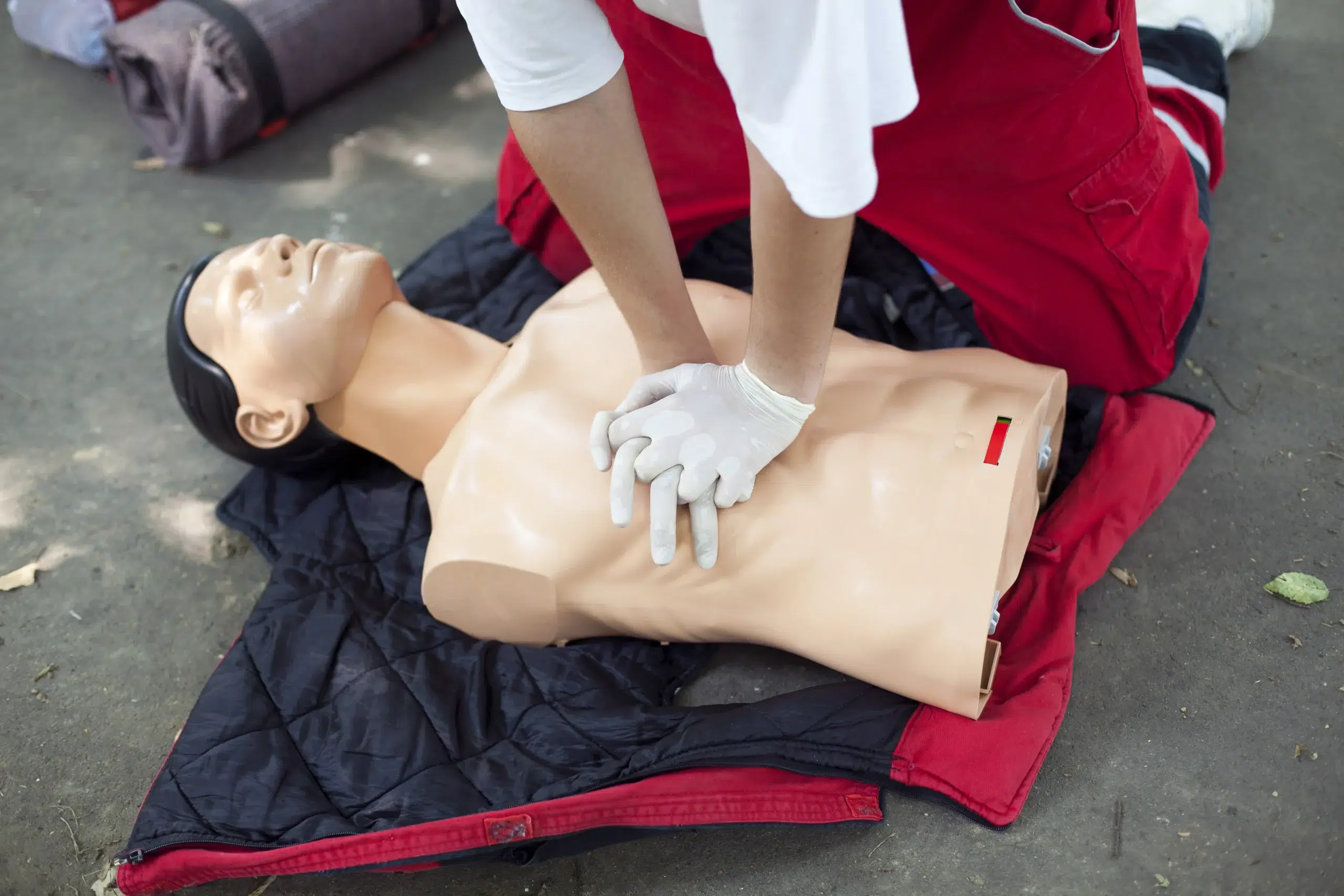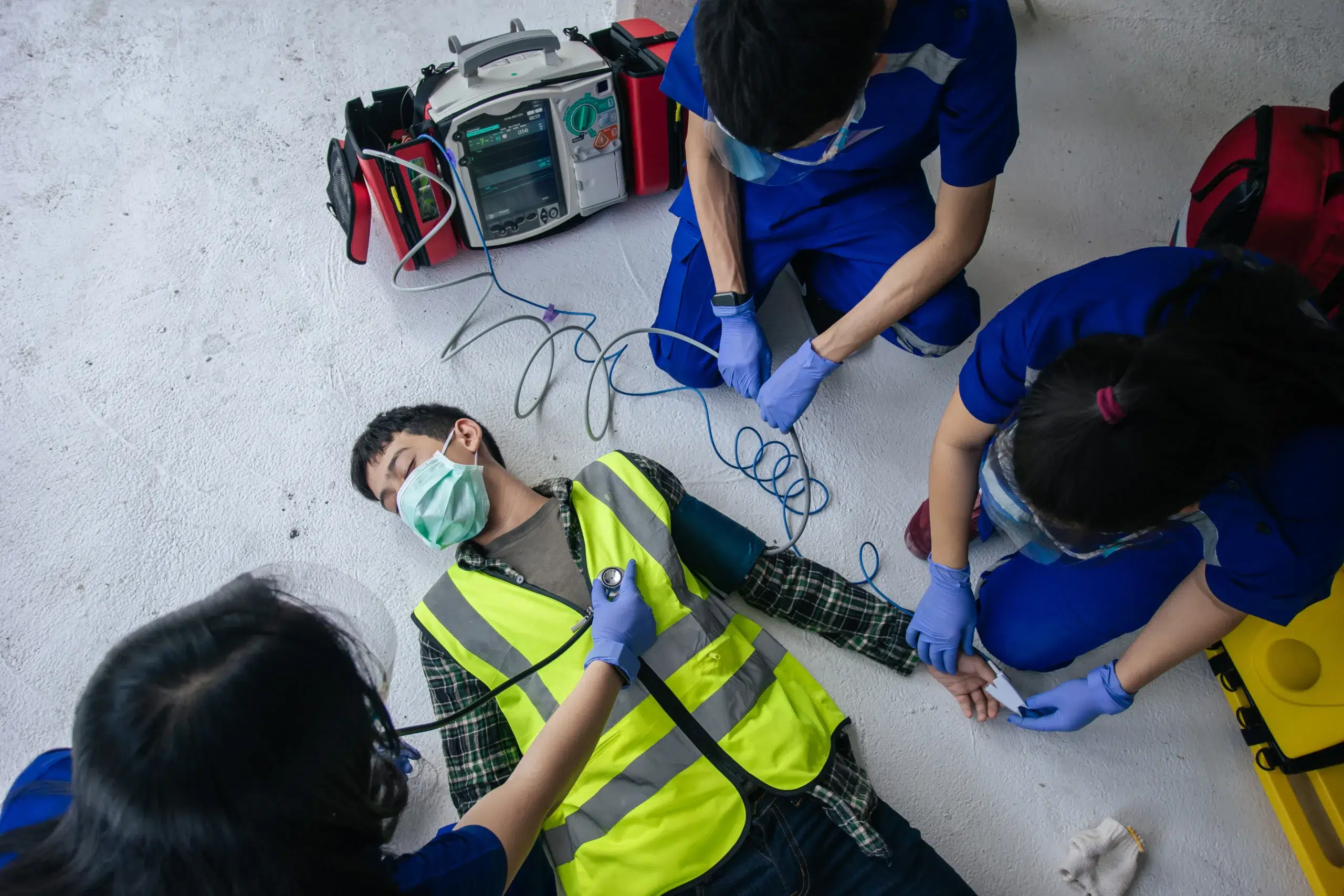Empowering yourself with life-saving skills is one of the most valuable things you can do, both for yourself and your community. This comprehensive guide will walk you through the essentials of CPR training Oakland, covering everything from basic CPR to more specialized certifications like ACLS and PALS. Whether you’re a healthcare professional, a concerned parent, or simply someone who wants to be prepared for anything, finding the right CPR training Oakland is easier than you think. We’ll explore the various types of courses available, discuss costs and certification, and highlight the top training providers in the Oakland area, including Oakland CPR Courses.
Key Takeaways
- CPR training empowers you to save lives: Whether you’re a healthcare professional or a concerned citizen, learning CPR and first aid provides you with the skills to respond effectively in emergencies.
- Find the right CPR course for your needs: Explore different course types, compare providers like Oakland CPR Courses, and consider factors like cost, schedule, and location to make an informed decision.
- Stay prepared by maintaining your CPR skills: Regular practice and refresher courses ensure your skills remain current and you’re always ready to assist in a medical emergency.
What is CPR Training?
CPR (Cardiopulmonary Resuscitation) training teaches you how to respond effectively when someone’s breathing or heartbeat stops. This life-saving technique combines chest compressions and rescue breaths to circulate oxygenated blood to vital organs, especially the brain. Learning CPR is essential, as it dramatically increases the chances of survival for someone experiencing cardiac arrest. CPR training covers proper techniques for chest compressions and rescue breaths, and often includes instruction on using an Automated External Defibrillator (AED). Programs typically combine theoretical knowledge and practical skills, building confidence so you’re prepared to act in real-life emergencies. This comprehensive approach benefits everyone, from healthcare professionals to everyday people, empowering them to make a difference. For local CPR training options, check out Oakland CPR Courses. They offer a variety of courses to suit different needs.
CPR Course Types
Choosing the right CPR course depends on your specific needs and goals. Whether you’re a concerned parent, a healthcare professional, or simply someone who wants to be prepared for emergencies, understanding the different types of CPR training available is essential. Here’s a breakdown of the most common CPR courses:
Basic CPR Training
Basic CPR training provides the foundational skills necessary to respond to cardiac arrest and other breathing emergencies. You’ll learn how to perform chest compressions, rescue breaths, and how to use an Automated External Defibrillator (AED). This course is ideal for anyone wanting to learn these lifesaving skills, including community members, teachers, and workplace responders. For more information on BLS CPR certification classes in Oakland, check out CPR Certification Plus’s AHA BLS CPR classes. This level of training is often combined with First Aid training.
First Aid + CPR
Combining First Aid and CPR training equips you to handle a broader range of emergencies. In addition to CPR and AED training, you’ll learn how to manage injuries like cuts, burns, and fractures. This comprehensive approach is valuable for anyone who wants to be fully prepared for unexpected situations. CPR Classes Oakland offers top-rated, AHA-certified courses for those seeking combined training.
Advanced Cardiac Life Support (ACLS)
Advanced Cardiac Life Support (ACLS) training is designed for healthcare professionals, including doctors, nurses, and paramedics. This advanced course covers complex algorithms for managing cardiovascular emergencies, including stroke and heart attack. It involves advanced airway management techniques, pharmacology, and team dynamics in resuscitation scenarios. Oakland CPR Courses offers ACLS Certification.
Pediatric Advanced Life Support (PALS)
Pediatric Advanced Life Support (PALS) training focuses on the specific needs of infants and children in emergency situations. Like ACLS, it’s geared towards healthcare providers who regularly work with young patients. The course covers pediatric assessment, airway management, and resuscitation techniques. This specialized training is crucial for anyone working in pediatrics, neonatal care, or emergency medicine. Learn more about PALS courses and other CPR training options in Oakland from Bay Area CPR.
Top Oakland CPR Training Providers
Finding the right CPR training provider is crucial for a quality learning experience. Here’s a look at some of the leading CPR training providers in Oakland:
Oakland CPR Courses
Oakland CPR Courses partners with Safety Training Seminars, a certified training center, to offer comprehensive CPR, BLS, ACLS, PALS, and First Aid training. They emphasize excellent customer service and competitive pricing, making them a popular choice for individuals and groups in Oakland, Alameda, and Berkeley. Explore their BLS, ACLS, and PALS courses. Oakland CPR Courses also offers group discounts and a low-price guarantee.
American Red Cross
The American Red Cross is a well-known provider of CPR and First Aid training in Oakland. They offer various courses suitable for individuals, first responders, and organizations, including specialized programs for schools. The Red Cross focuses on convenient scheduling and accessible locations, with classes designed to fit busy schedules. You can find a class near you.
CPR Certification Oakland
CPR Certification Oakland provides American Heart Association (AHA) certified CPR and First Aid classes. Their courses cover BLS, CPR, and AED use for adults, children, and infants. Learn more on their website.
Safety Training Seminars
Safety Training Seminars offers AHA-certified CPR, BLS, ACLS, and PALS courses in Oakland. They understand the importance of these life-saving skills and strive to provide high-quality training. Find additional details about their Oakland courses.
CPR Training Costs & Value
Understanding CPR training costs is a practical first step. This section breaks down typical expenses, explores potential savings, and highlights the value of our low price guarantee at Oakland CPR Courses.
Typical Course Costs
CPR training costs in Oakland vary depending on the provider and the type of course. Basic CPR certification classes typically range from $60 to $90. For example, CPR Certification Oakland offers American Heart Association (AHA) certified CPR classes for $64.95, while a combined First Aid and CPR class is $84.95. These classes usually run for about three hours. You can find more information on their website. More advanced courses, such as ACLS and PALS, tend to be more expensive due to the specialized nature of the training. Remember that investing in CPR training is investing in potentially life-saving skills.
Group Discounts & Special Offers
Looking to train a group? Many providers, including CPR Certification Oakland, offer discounts for group bookings and on-site training options. The Red Cross also extends a 10% discount for group registrations. Check with your chosen provider for specific details on group discounts and any ongoing promotions. These discounts can make training your team or organization significantly more affordable. You can explore Red Cross CPR class options in Oakland.
Oakland CPR Courses’ Low Price Guarantee
At Oakland CPR Courses, we believe that high-quality CPR training should be accessible to everyone. We offer competitive pricing on all our courses, including BLS, ACLS, and PALS. Our commitment to affordability is backed by our low price guarantee, ensuring you receive exceptional training without breaking the bank. We encourage you to compare our prices and see how we provide top-tier training at a truly competitive rate. We also offer group discounts to make training even more accessible for organizations. Learn more about our AHA BLS, ACLS, and PALS certifications.
CPR Training Duration & Certification
Typical Class Lengths
CPR training classes are designed to be efficient and effective, typically lasting about three hours. This timeframe allows instructors to cover essential concepts and techniques, combining theoretical instruction with hands-on practice. This balanced approach ensures participants develop a solid understanding of CPR principles and gain the confidence to perform it correctly. Oakland CPR Courses understands the value of your time and strives to deliver comprehensive training within this manageable timeframe.
Certification Requirements
Earning your CPR certification involves successfully completing the training course and demonstrating proficiency in the required skills. Upon completion of a CPR class through Safety Training Seminars, you’ll receive an American Heart Association (AHA) BLS CPR card, valid for two years. This nationally recognized certification signifies your readiness to respond to cardiac emergencies and is often required for healthcare professionals, educators, and other roles involving public safety.
Certification Renewal
CPR is a dynamic field, with guidelines and best practices evolving over time. To ensure your skills remain sharp and aligned with current standards, CPR certifications expire after two years. Maintaining your certification is straightforward—you can either renew your existing certification or take a refresher course. Regularly updating your skills keeps your certification current and reinforces your confidence and preparedness for emergencies.
Benefits of CPR Training
Learning CPR offers significant advantages that extend beyond simply responding to emergencies. It empowers individuals, enhances workplace safety, and strengthens the community. Let’s explore these benefits:
Personal Skill Development
CPR training equips you with life-saving skills, building confidence and reducing anxiety in emergencies. Knowing you can make a difference if someone experiences cardiac arrest empowers you to act quickly and decisively. This knowledge translates to improved preparedness, not just for cardiac arrest, but for other medical emergencies as well. It fosters a sense of self-reliance and the ability to remain calm under pressure. The American Red Cross uses current science and best practices in its training, ensuring you learn effective techniques.
Workplace Safety
CPR-trained employees are invaluable assets. Having trained individuals on-site can significantly reduce response times in emergencies, potentially minimizing the severity of injuries or illnesses. This proactive approach creates a more secure work environment and demonstrates a commitment to employee well-being. CPR Certification Oakland is a reputable provider of CPR and First Aid training, and their certification is widely accepted. For businesses, investing in employee CPR training can also lead to lower insurance premiums and improved compliance with safety regulations.
Community Impact
CPR and first-aid training create a ripple effect of positive change. When more people are equipped to handle emergencies, the entire community benefits. The Red Cross offers training for individuals, first responders, schools, and community groups, fostering a culture of preparedness. This widespread training can lead to improved outcomes in emergencies, creating a safer environment for everyone. By learning CPR, you become an active participant in building a more resilient and prepared community.
Choose the Right CPR Course
Finding the right CPR course involves understanding your needs, comparing course content, and checking the credibility of the training provider. Let’s break down each step to help you make the best choice.
Assess Your Needs
Before searching for CPR classes, ask yourself why you need this training. Are you required to have CPR certification for your job, or are you learning a valuable life skill? Do you need basic CPR training or a more advanced certification like ACLS or PALS? Consider your schedule and location, too. Do you prefer a weekend class, an evening session, or on-site training at your workplace? Understanding your needs helps narrow your options. For those seeking cost-effective options, explore group discounts available through providers like Oakland CPR Courses.
Compare Course Content
Once you’ve identified potential courses, compare what each offers. Some focus solely on adult CPR, while others include training for infants and children. Some incorporate AED training, while others might not. Look for an AHA-aligned course to ensure you’re learning the most up-to-date techniques. If you’re unsure, contact the provider and request a course outline.
Evaluate Provider Credentials
Choosing a reputable provider is crucial. Look for certification by nationally recognized organizations like the AHA. Check instructor experience and certifications, often found on the provider’s website. Reading reviews can offer insights into training quality. Oakland CPR Courses emphasizes both quality instruction and competitive pricing, making them a strong contender for your CPR training needs. Don’t hesitate to contact the provider directly with any questions. A reputable provider will gladly address your concerns.
What to Expect in CPR Training
Knowing what to expect can help you feel prepared and confident on the day of your CPR training. Classes typically combine instructional videos and demonstrations with hands-on practice and assessment.
Course Structure
CPR training in Oakland usually follows a blended learning format, combining online coursework with an in-person skills session. This lets you learn the basics at your own pace before practicing your skills with a certified instructor. Some providers, like the Red Cross, also offer fully in-person CPR classes. You’ll find courses structured around specific certifications, such as those offered by CPR Certification Oakland for American Heart Association (AHA) certifications.
Hands-on Practice
The core of CPR training involves hands-on practice. You’ll work with mannequins designed for adult, child, and infant CPR to develop the muscle memory and coordination needed for effective compressions. Expect to practice techniques like chest compressions, rescue breaths, and the Heimlich maneuver. Smaller class sizes often allow for more personalized instruction and practice time with the instructor.
Assessment & Certification
Most CPR courses conclude with an assessment to ensure you understand the key concepts and can perform CPR correctly. After successful completion, you’ll receive an official certification card, usually valid for two years. This two-year validity is standard for AHA BLS CPR cards. Remember to renew your CPR certification to maintain your skills and credentials.
Maintain Your CPR Skills
Learning CPR is a crucial first step, but maintaining those skills is just as important. Regular practice and staying up-to-date on the latest guidelines will ensure you’re prepared to act confidently in an emergency.
Practice & Resources
Consistent practice is key to keeping your CPR skills sharp. Set aside time each month to review the techniques. Even practicing on a pillow can help reinforce proper chest compressions and hand placements. For additional support, the Red Cross offers CPR classes and certification in Oakland.
Refresher Courses
CPR certifications typically expire after two years. Guidelines and best practices can change, so staying current is essential. CPR Certification Oakland offers American Heart Association (AHA) certified courses, including refreshers to keep your certification up-to-date. Taking a refresher course ensures you’re equipped with the most current knowledge and techniques.
Online Resources & Guides
Beyond in-person practice and refresher courses, online resources can be valuable tools. The Red Cross provides helpful guides and a BLS handbook to reinforce what you’ve learned in your CPR training. These resources offer step-by-step instructions and important reminders.
Why Choose Oakland CPR Courses?
When it comes to CPR training, choosing the right provider matters. Oakland CPR Courses stands out for its commitment to quality instruction, competitive pricing, and convenient scheduling. Whether you need basic CPR certification or advanced life support training, Oakland CPR Courses offers a range of options.
Competitive Pricing & Quality
We believe that high-quality CPR training should be accessible. Our American Heart Association certified courses ensure you receive instruction that meets the highest standards. We offer competitive prices and keep our class sizes small for personalized attention and maximized learning. This focus on quality instruction at an affordable price makes Oakland CPR Courses a smart choice. Our instructors cover BLS for adults, children, and infants, preparing you to respond effectively in various emergencies.
Comprehensive Courses
Oakland CPR Courses offers a variety of courses to meet different needs. From basic CPR and first aid to advanced certifications like ACLS and PALS, we have a program for you. We also offer the American Heart Association RQI program for healthcare professionals seeking a streamlined path to BLS, ACLS, and PALS recertification. Our comprehensive curriculum ensures you gain the knowledge and skills to handle emergencies.
Convenient Schedules & Locations
We know your time is valuable, so we offer daily classes in Oakland, conveniently located for those in Alameda and Berkeley. Our flexible scheduling makes it easy to fit CPR training into your life. Contact us to find a class that works for you. We’re committed to making CPR training accessible and convenient for everyone in the Oakland area. Explore our group discounts for added value.
Related Articles
- The Science Behind Effective CPR: A Comprehensive Guide
- The Importance of CPR in Saving Lives – Oakland CPR Classes
- Life-Saving Workplace CPR and First-Aid Training in Oakland
- CPR, BLS, ACLS, PALS, & First-aid Courses in Oakland, CA
- BLS CPR Classes in Oakland, CA – Oakland CPR Classes
Frequently Asked Questions
What’s the difference between BLS and CPR? BLS (Basic Life Support) is a broader term encompassing CPR (Cardiopulmonary Resuscitation) and other essential techniques like using an AED and relieving choking. Think of CPR as one piece of the BLS puzzle, focusing specifically on chest compressions and rescue breaths. BLS builds upon CPR, adding more tools to your lifesaving toolkit.
How long does CPR certification last, and how do I renew it? CPR certification is typically valid for two years. To renew, you can take a refresher course. This ensures your skills and knowledge are up-to-date with the latest guidelines. Check with your certifying organization or training provider for specific renewal requirements and available courses.
Which CPR course is right for me? The best CPR course depends on your individual needs. Basic CPR and First Aid training is great for general knowledge and community members. Healthcare providers usually require more advanced training like ACLS or PALS. Consider your current role, workplace requirements, and personal goals when choosing a course.
What can I expect during a CPR training class? Expect a combination of learning and hands-on practice. You’ll learn the theory behind CPR, watch demonstrations, and practice techniques on mannequins. Most classes also include instruction on using an AED. The goal is to build your confidence and competence in performing CPR effectively.
Why is it important to learn CPR? CPR is a life-saving skill that can dramatically increase the chances of survival for someone experiencing cardiac arrest. Learning CPR empowers you to act quickly and confidently in emergencies, potentially making a real difference in someone’s life. It’s a valuable skill for everyone, not just healthcare professionals.
This article was written for free by MEGA SEO.
